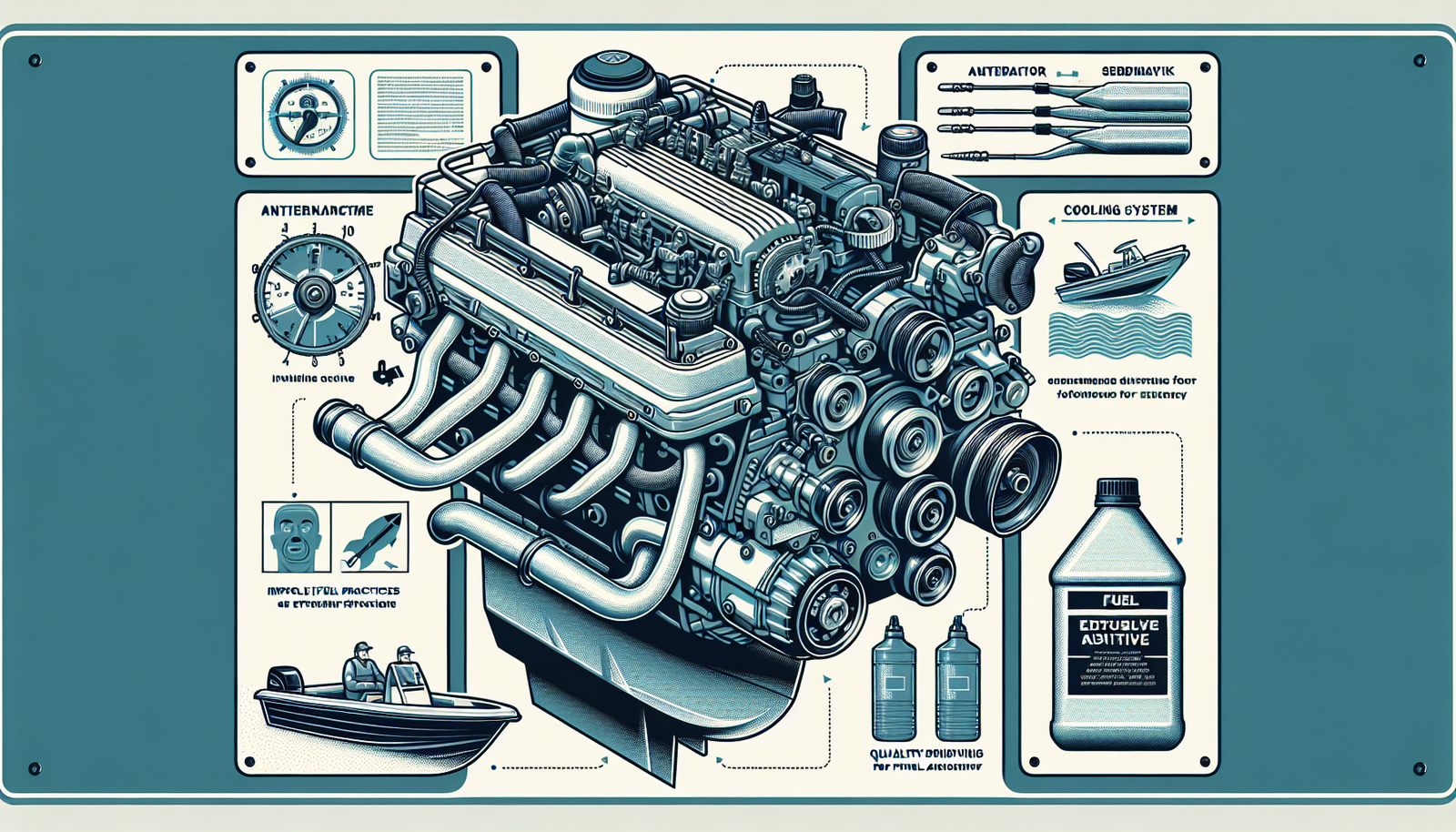Navigating the vast watery expanse can provide a thrilling sense of adventure, but the underlying concern of fuel efficiency never truly fades away. “Best Ways To Enhance The Fuel Efficiency Of Your Boat Engine” arms you with practical measures that could significantly cut down on your boat’s fuel consumption. This piece zeroes in on techniques and modifications to apply to your current boat engine’s operation system, and offers some guidance on regular maintenance and other proactive habits. By tackling these elements, you’re certain to see improvements in your boat’s fuel efficiency, translating to more time taking in the awe-inspiring maritime panorama, and less time worrying about your next refuel.
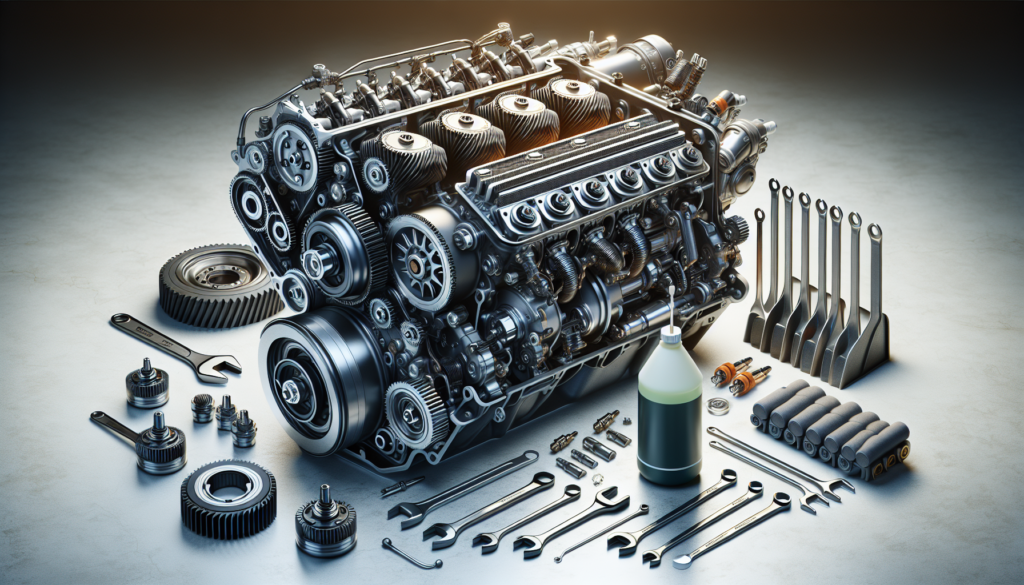
Understanding the Basics of Boat Fuel Efficiency
It is critical for you to understand the fundamental aspects of boat fuel efficiency. Knowing how your boat’s engine works, understanding its fuel consumption rates, and recognising the impact of the boat’s design on its fuel efficiency are all instrumental in boosting the overall performance of your boat.
Basics of Boat Engines and fuel efficiency
Your boat engine is the heart of your vessel, and just like our bodies, hearts perform best under optimal conditions. Different engines have different efficiency rates which translates to how they consume fuel. The bigger the engine, the higher the fuel consumption. But, it is important to remember that efficiency is not just about size but also about how well the engine is operating.
Understanding fuel consumption
Fuel consumption pertains to the amount of fuel your boat’s engine uses in a certain period or distance. It is greatly affected by the engine’s capacity and performance, the load of the boat, the design, and your driving habits, among others. Understanding how these factors influence fuel consumption is vital in managing and improving your boat’s fuel efficiency.
Impact of boat design on fuel efficiency
Believe it or not, your boat’s design plays a significant role in determining fuel efficiency. The shape of the hull, the material used for construction, the weight of the boat, and even the paint can influence how smoothly your boat glides through water and, consequently, the amount of fuel consumed.
Maintaining Engine Performance
Maintaining engine performance is essential in maximizing fuel efficiency. Regular engine maintenance can significantly impact fuel usage, while understanding the basic maintenance practices can save you a considerable amount of fuel.
Importance of Regular Engine Maintenance
Just like any other machine, your boat’s engine needs regular care and maintenance to function optimally. Regular servicing not only prolongs the engine’s life but also ensures that it operates at peak efficiency. Without regular maintenance, your engine will gradually become less efficient, leading to increased fuel consumption.
How to Perform Basic Engine Maintenance
Basic engine maintenance involves regular oil changes, keeping the engine clean, replacing worn-out parts, checking for leaks, inspecting the engine belts, and ensuring the cooling system is functioning properly.
Impact of engine maintenance on fuel efficiency
A well-maintained engine performs optimally, using fuel more efficiently and providing better mileage. On the other hand, an ill-maintained engine has to work harder, which leads to higher fuel consumption.
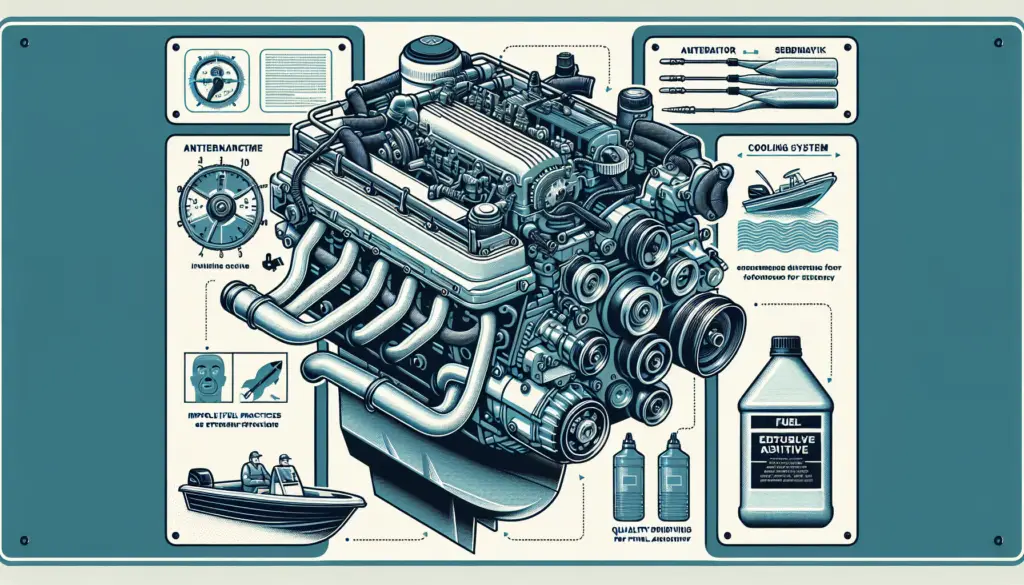
Selecting the Right Motor
Choosing the right motor for your boat is critical for efficient fuel usage. Different types of motors have different fuel consumption rates, and understanding this can help you choose the right one.
Types of Boat Motors
There are mostly three types of boat motors – inboard motors, outboard motors, and inboard/outboard (IO) motors. Each of these has its pros and cons when it comes to fuel efficiency, performance, maintenance, and versatility.
How to Choose the Right Motor
Your choice of a boat motor largely depends on your boating needs, including how often you will be using the boat, the conditions in which you will be boating, your budget, and of course, the fuel efficiency you aim for.
Impact of Motor type on Fuel Consumption
The type of motor significantly affects the fuel efficiency of your boat. For instance, 4-stroke outboard engines are generally more fuel-efficient than 2-stroke engines. Similarly, diesel inboard engines are typically more fuel-efficient than gasoline engines.
Optimizing Boat Load
Managing the load your boat carries can greatly influence its fuel efficiency. Understanding how load affects fuel efficiency and how to optimize it can lead to considerable fuel savings.
Understanding boat load
Boat load refers to the total weight that your boat carries, including passengers, gear, supplies, and even the boat itself. The greater the load, the harder your boat has to work to move, leading to increased fuel consumption.
Impact of load on fuel efficiency
Increasing the load on your boat forces the engine to work harder. This causes a rise in fuel consumption. The trick is to strike a balance between carrying what you need for your voyage and not overloading the boat.
Ways to optimize boat load
Efficiently distributing weight across the boat, limiting the amount of unnecessary items onboard, and regularly checking and adjusting for optimal load are great ways to enhance your boat’s fuel economy.
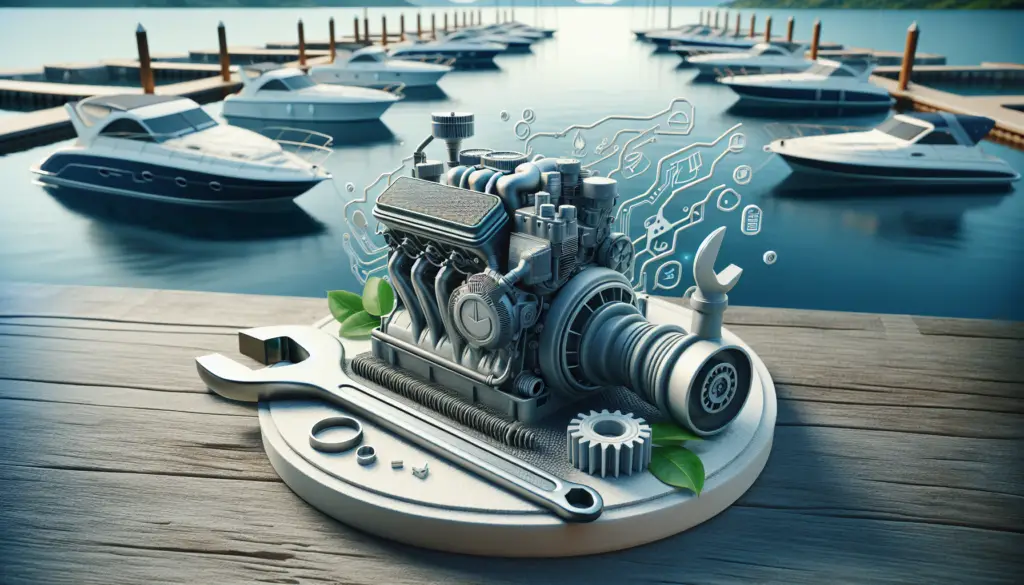
Implementing Correct Driving Techniques
The way you operate your boat can heavily influence its fuel efficiency. By understanding and implementing correct driving techniques, you can optimize fuel usage.
Essential boat driving skills for fuel efficiency
There are a few techniques every boat operator should know for improved fuel efficiency. These include gradually accelerating, maintaining a constant speed, avoiding frequent stops and starts, and driving at optimal trim.
Understanding the effects of different driving techniques
Different driving techniques can either increase or decrease fuel usage. Rapid acceleration and high speeds can significantly increase fuel consumption, whereas maintaining a consistent and moderate speed improves fuel efficiency.
Best practices in boat driving
Adopting best practices can help maximize fuel efficiency. This includes maintaining a constant and moderate speed, planning your route in advance, and knowing when to slow down and speed up.
Proper Use of Trim and Tilt
Trim and tilt play a crucial role in the performance of your boat and its fuel consumption. Understanding their purpose and how to adjust them can enhance fuel efficiency.
Purpose of Trim and Tilt
Trim and tilt are used to adjust the angle at which your boat sits in the water. Correctly adjusting them can help the boat glide more smoothly across the water, reducing drag and improving fuel consumption.
Impact of trim and tilt settings on fuel consumption
Incorrect trim and tilt settings can cause the boat to ‘plow’ or ‘porpoise’ through the water, leading to increased resistance and higher fuel consumption. On the other hand, correct settings enable your boat to move through the water more efficiently.
How to adjust trim and tilt for better fuel efficiency
Too much tilt, either up or down, can lead to inefficient operation and increased fuel consumption. Finding the ‘sweet spot’ where the boat runs smoothly and at a nearly level attitude is key to optimizing trim and tilt.
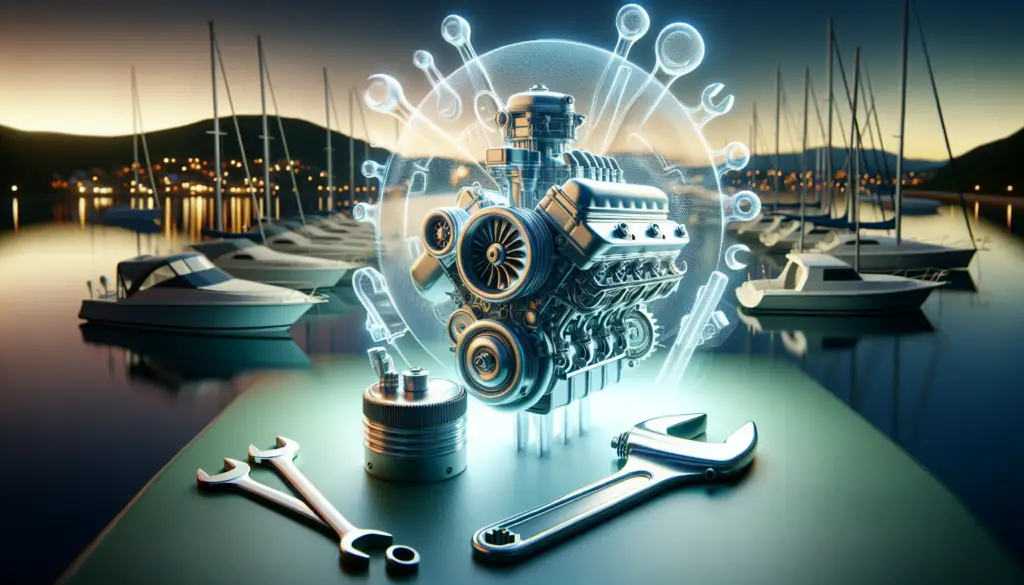
Implementing Speed Control
Implementing speed control can dramatically improve fuel efficiency. Learn how speed affects fuel consumption and how to maintain optimum speed.
Impact of speed on fuel consumption
Higher speeds lead to higher fuel consumption. As your boat’s speed increases, so does water resistance, forcing your engine to work harder and burn more fuel.
Understanding optimal boat speed
Optimal speed varies for different boats, but it is generally a speed at which your boat moves comfortably through the water without straining the engine, typically around 70% of your boat’s top speed.
Tips for maintaining desirable speed for fuel efficiency
Using your boat’s tachometer to keep an eye on revolutions per minute (RPM), avoiding sudden speed changes, and maintaining a moderate, steady speed are all excellent ways to improve fuel efficiency.
Regular Fuel System Check
Regular fuel system checks are vital to maintaining and enhancing fuel efficiency. Learn why it’s important, how to do it, and how it affects fuel efficiency.
Importance of regular fuel system checks
Regular checks can help identify any potential issues early on, preventing costly damages and ensuring optimal fuel efficiency.
How to perform fuel system checks
Check for leaks in the fuel lines, replace fuel filters as recommended by the manufacturer, and ensure that the fuel tank is clean and free from water or debris.
Impact of fuel system condition on fuel efficiency
A poorly maintained fuel system can lead to reduced engine performance, increased fuel consumption, and even serious engine damage.
Understanding and Using Correct Prop size and Pitch
Having the correct prop size and pitch is paramount for efficient fuel consumption. Understand its importance, know the implications of incorrect size and pitch, and learn how to select the right one.
Importance of correct prop size and pitch
The right prop size and pitch can significantly improve your boat’s performance and fuel efficiency. They can ensure that your engine reaches its optimal RPM at wide-open throttle.
Implications of incorrect prop size and pitch
Using the wrong prop size or pitch can strain your engine, reduce boat speed, negatively affect handling, and increase fuel consumption.
How to select the right prop size and pitch
Selecting the right prop size and pitch requires a thorough understanding of your boat’s specs and performance characteristics. When in doubt, always consult the owner’s manual or talk to a professional.
Adopting Effective Weather and Water Conditions Strategy
Weather and water conditions can significantly affect your boat’s fuel efficiency. Learn the effects, how to use weather forecasts, and tips for navigating.
Understanding the effects of weather and water conditions
Weather and water conditions can greatly influence your boat’s performance and its fuel consumption. High winds, rough seas, and strong currents can make your boat work harder and consume more fuel.
How to use weather forecasts for fuel efficiency
Weather forecasts can help you prepare and plan for the conditions you will encounter, allowing you to plan the most energy-efficient route.
Tips on navigating different water conditions
Navigating smoothly through diverse water conditions requires experience, knowledge and skills. Understanding the impact of currents, the effect of wind and waves, and adjusting your speed appropriately can significantly enhance fuel efficiency.

